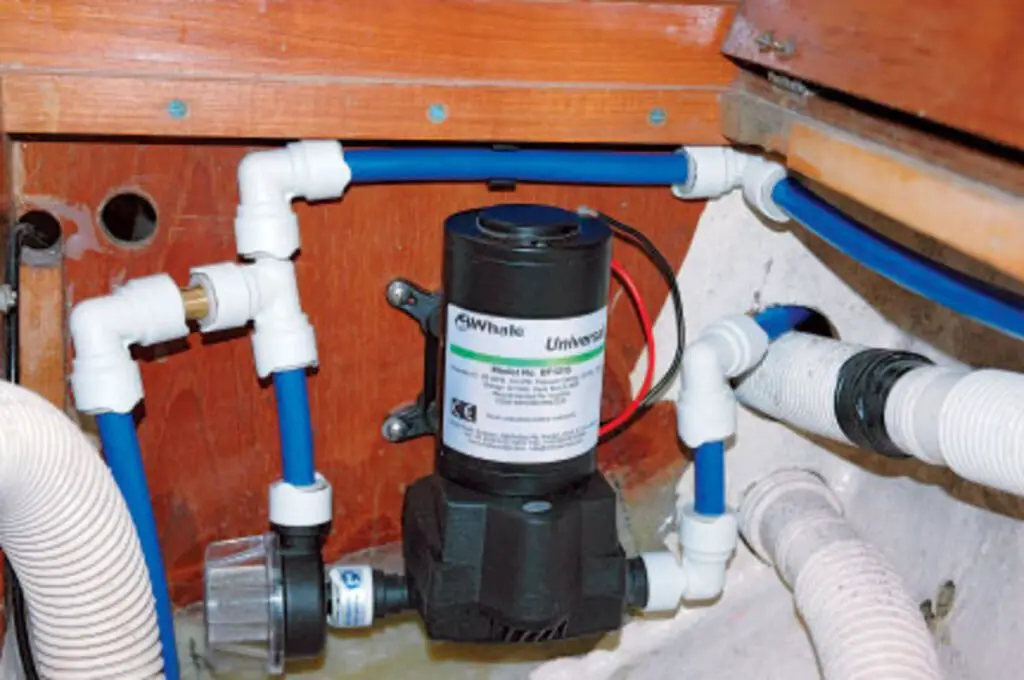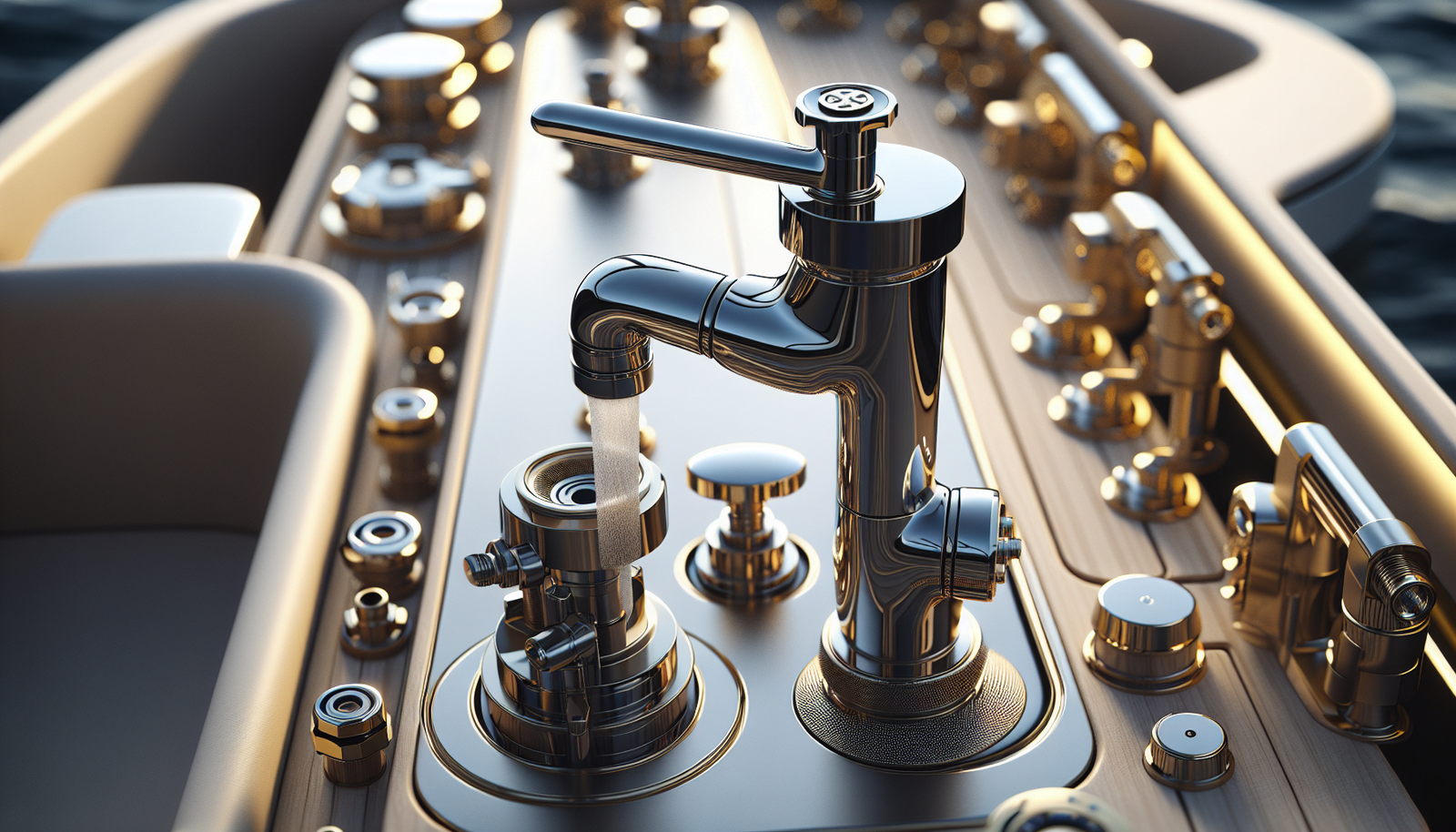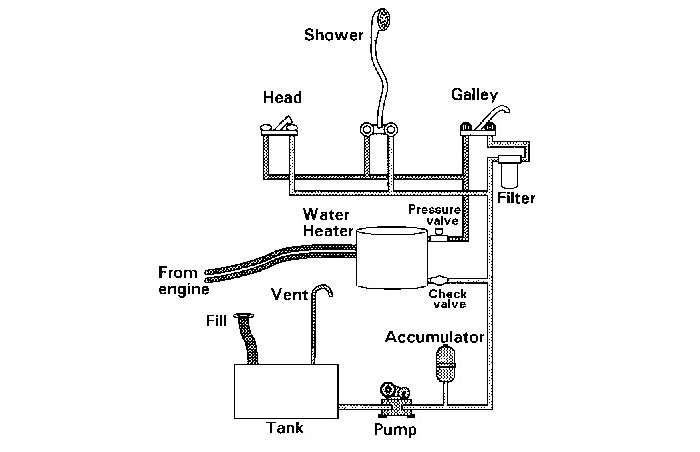Are you a boat owner looking to enhance your boating experience? Look no further! In this article, we will explore the best ways to customize your boat’s plumbing and electrical systems. Whether you want to upgrade your boat’s showers, toilets, or add new lighting and entertainment features, we have got you covered. From practical improvements to luxury additions, we will provide you with all the information you need to transform your boat into the ultimate paradise on the water. So, grab your tools and get ready to take your boating adventures to the next level!
Plumbing Systems
Choosing the Right Plumbing Materials
When customizing your boat’s plumbing system, selecting the right materials is crucial. You want to ensure that the plumbing components are durable, corrosion-resistant, and suitable for marine environments. Marine-grade stainless steel and corrosion-resistant plastics, such as PVC or PEX, are excellent choices for plumbing pipes and fittings. These materials can withstand the harsh conditions of saltwater, resist corrosion, and provide a long-lasting plumbing system for your boat.
Upgrading to a Pressurized Water System
Gone are the days of manual pumps and limited water supply on boats. Upgrading to a pressurized water system will revolutionize your boating experience. With a pressurized system, you will have a consistent and reliable water supply on board. It operates using a water pump that pressurizes the water from your water tanks and delivers it to your faucets, showers, and other on-board water fixtures at the touch of a button. Say goodbye to hand-pumping and hello to convenience and comfort.
Installing a Water Heater
For those who enjoy hot showers or warm water for cooking and cleaning, installing a water heater on your boat is a must. A water heater will bring the comforts of home to your vessel, allowing you to enjoy hot water whenever you need it. There are various options to consider, ranging from tankless water heaters to compact storage tank models. Take into account your boat’s size, water usage requirements, and energy sources available to determine the right water heater for your needs.
Adding a Water Filtration System
Providing clean, fresh water on your boat is essential for the health and well-being of everyone on board. Adding a water filtration system will ensure that the water you consume and use for cooking and cleaning is free from impurities. Consider installing a marine-grade water filter that can remove common contaminants such as sediment, chlorine, and heavy metals. This will not only enhance the taste and odor of the water but also protect your plumbing system from potential clogs and damage.
Installing a Marine Toilet
Upgrading your boat’s toilet is a significant improvement in terms of both functionality and comfort. A marine toilet is specifically designed to handle the unique challenges of the marine environment. It uses a macerating system to break down waste and pump it out of the boat, ensuring proper disposal and avoiding any unpleasant odors. With options like electric or manual flush, compact designs, and water-conserving features, installing a marine toilet will greatly enhance your boating experience.
Upgrading the Bilge Pump System
A reliable bilge pump system is crucial for maintaining a dry and safe boat. Upgrading your bilge pump system will provide peace of mind, knowing that your boat is protected against water buildup and potential flooding. Consider installing an automatic bilge pump that activates when water is detected, ensuring timely water removal. Additionally, having a backup pump and a high-water alarm system will provide an extra layer of safety and protection, especially during rough weather conditions.
Installing a Gray Water System
Managing and disposing of gray water, which includes wastewater from sinks, showers, and appliances, is necessary to prevent pollution and maintain the cleanliness of water bodies. Installing a gray water system on your boat will enable you to collect and treat this water before it is safely discharged. Consider using a compact gray water holding tank with a pump or filtration system to remove contaminants and ensure proper disposal according to environmental regulations.
Adding a Holding Tank
If you frequently venture to areas where on-shore pump-out facilities are scarce, adding a holding tank to your boat is essential. A holding tank allows you to store wastewater from your marine toilet instead of directly discharging it into the water. Choose a holding tank capacity that suits your needs based on the size of your vessel and the number of people on board. Additionally, consider adding a tank-level monitoring system to keep track of your holding tank’s capacity and plan for necessary pump-outs.
Installing a Shower System
A refreshing shower on board can make a significant difference, especially during long trips or after a day of water activities. Installing a dedicated shower system offers convenience and comfort, allowing you to rinse off saltwater, sand, or sweat. Look for compact and water-efficient shower kits specifically designed for boats, and consider using a shower sump system to collect and drain the used shower water safely.
Upgrading the Plumbing Fixtures
Upgrading your boat’s plumbing fixtures can enhance both the functionality and aesthetics of your vessel. Consider replacing outdated faucets, showerheads, and other fixtures with modern, marine-grade options that are specifically designed for durability in the marine environment. Look for fixtures with water-saving features to conserve water while enjoying the comforts of your boat. Upgrading your plumbing fixtures is a simple yet effective way to customize your boat’s plumbing system.
Electrical Systems
Selecting the Right Marine Batteries
When customizing your boat’s electrical system, selecting the right marine batteries is essential for reliable power supply. Marine batteries are designed to withstand the challenges of the marine environment, including vibration, harsh weather conditions, and deep discharges. Consider the type of battery, such as flooded lead-acid, absorbed glass mat (AGM), or lithium-ion, based on your power requirements, space limitations, and maintenance preferences. Investing in high-quality marine batteries will ensure a dependable source of power for all your electrical needs on board.
Upgrading the Battery Charging System
To keep your marine batteries charged and in optimal condition, upgrading your battery charging system is a smart move. Consider installing a battery charger that is specifically designed for marine use, with features like multi-stage charging, temperature compensation, and compatibility with different battery types. This will ensure that your batteries are charged efficiently and extend their lifespan. Additionally, consider integrating a battery monitoring system to keep track of your battery’s state of charge and health.
Installing Solar Panels
Harnessing the power of the sun is an excellent way to provide renewable energy for your boat. Installing solar panels on your boat’s roof or deck can significantly reduce your reliance on shore power or fuel-dependent generators. Solar panels convert sunlight into electricity and charge your batteries, powering various electrical devices on board. Ensure you select marine-grade solar panels that are designed to withstand the marine environment, such as those with corrosion-resistant materials and flexible mountings.
Adding an Inverter
If you want to power AC (alternating current) devices on your boat, adding an inverter to your electrical system is essential. An inverter converts the DC (direct current) power from your batteries into AC power, allowing you to use household appliances, electronics, and other AC devices on board. Consider the power capacity and waveform type (pure sine wave or modified sine wave) of the inverter based on your specific needs and the appliances you plan to use.
Upgrading the Electrical Panel
The electrical panel is the control center of your boat’s electrical system, responsible for distributing power to various circuits and protecting against overloads or electrical faults. Upgrading your electrical panel with modern circuit breakers, switches, and meters will enhance safety, efficiency, and ease of use. Consider a panel with clear labeling, LED indicators, and compact design to make managing your electrical system more accessible and organized.
Installing LED Lighting
Upgrading to LED lighting throughout your boat is an excellent customization choice for several reasons. LED lights consume significantly less energy than traditional incandescent bulbs, resulting in longer battery life and reduced energy consumption. They also emit less heat, reducing the risk of fire onboard and keeping your boat cooler. Opt for marine-grade LED lights that are designed to withstand the marine environment, such as those with waterproof and vibration-resistant features.
Adding Navigation and Communication Systems
Enhance the safety and navigational capabilities of your boat by adding advanced navigation and communication systems. Consider installing a GPS (Global Positioning System) chartplotter, radar, VHF radio, AIS (Automatic Identification System), and other navigation aids. These systems provide essential information about your boat’s position, surrounding vessels, and weather conditions, ensuring safe and efficient navigation. Choose systems that are designed for marine use and have reliable performance even in challenging conditions.
Upgrading the Entertainment System
Make your time on board even more enjoyable by upgrading your boat’s entertainment system. Consider installing marine speakers, a marine-grade stereo system, and waterproof televisions to enhance your audio and visual experience. Look for systems with Bluetooth connectivity, USB ports, and compatibility with various media sources, allowing you to enjoy your favorite music, movies, or TV shows while out on the water.
Installing a Security System
Protecting your investment is essential, and installing a security system on your boat can provide peace of mind. Choose a marine-grade security system that includes features such as motion sensors, door and hatch sensors, and audible alarms. Some systems also offer remote monitoring capabilities, allowing you to keep an eye on your boat even when you’re not on board. A robust security system can deter theft and unauthorized access, ensuring the safety and security of your boat and belongings.
Upgrading the Wiring and Grounding
Ensuring the integrity of your boat’s electrical system requires proper wiring and grounding. Upgrading your boat’s wiring with marine-grade, tinned copper wire will minimize corrosion and improve electrical performance. Consider using heat-shrink connectors and cable glands to provide secure and waterproof connections. Additionally, check and improve your boat’s grounding system to prevent electrical shock hazards and improve safety. Proper wiring and grounding are essential for a reliable and safe electrical system.




